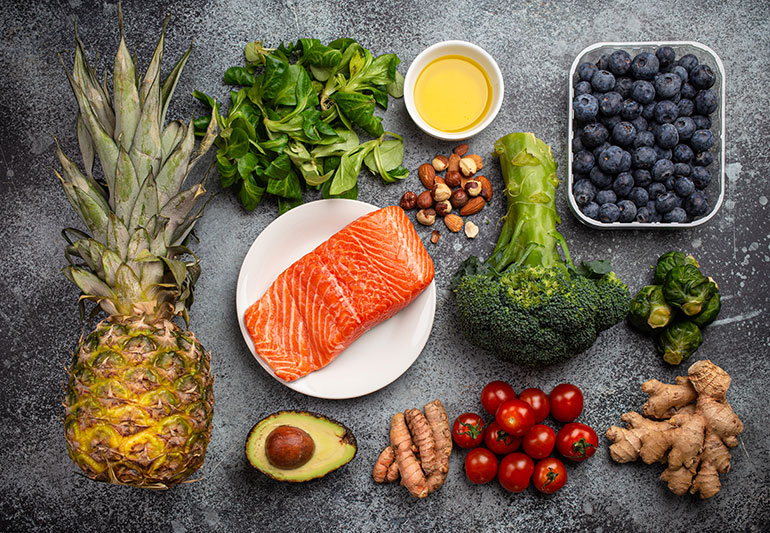
Introduction
An imbalance diet lacking essential nutrients can have a significant impact on overall health, particularly hormone regulation. Poor eating habits can contribute to issues such as weight gain, mood swings, fatigue, and metabolic disorders. Understanding the effects of an imbalanced diet and making necessary dietary changes can help restore hormonal balance and improve well-being.
Effects of an Imbalanced Diet on Hormonal Health
1. Increased Cortisol Levels (Stress Hormone)
A diet high in processed foods, refined sugar, and caffeine can lead to elevated cortisol levels, which contribute to chronic stress, anxiety, and poor sleep quality.
2. Insulin Resistance and Blood Sugar Spikes
Excessive consumption of refined carbohydrates and sugary foods can cause insulin resistance, increasing the risk of type 2 diabetes, obesity, and hormonal fluctuations.
3. Estrogen Dominance
Consuming processed foods and unhealthy fats can disrupt estrogen balance, leading to symptoms such as irregular menstrual cycles, mood swings, and weight gain.
4. Thyroid Dysfunction
A lack of iodine, selenium, and essential fatty acids in the diet can negatively impact thyroid function, resulting in fatigue, sluggish metabolism, and hair loss.
5. Disruptions in Reproductive Hormones
Deficiencies in essential nutrients such as zinc, magnesium, and vitamin D can affect reproductive health, leading to infertility, menstrual irregularities, and low libido.
Best Foods to Restore Hormonal Balance
1. Whole, Unprocessed Foods
- Fresh fruits and vegetables rich in vitamins and antioxidants.
- Whole grains such as quinoa, brown rice, and oats for sustained energy.
2. Healthy Fats
- Avocados, olive oil, and flaxseeds for hormone production.
- Omega-3-rich sources like salmon and walnuts to reduce inflammation.
3. Lean Proteins
- Eggs, tofu, and lean meats support hormone synthesis.
- Legumes and nuts for plant-based protein alternatives.
4. Fiber-Rich Foods
- Leafy greens, beans, and seeds promote digestion and estrogen detoxification.
5. Hydrating Foods and Herbal Teas
- Water-rich foods like cucumbers and watermelon aid detoxification.
- Herbal teas like chamomile and green tea help manage stress hormones.
Foods to Avoid for Hormonal Balance
- Refined Sugar: Contributes to blood sugar imbalances and weight gain.
- Processed Foods: Contain artificial additives that disrupt hormones.
- Excess Caffeine and Alcohol: Can increase cortisol levels and impact sleep.
- Trans Fats: Found in fried and packaged foods, leading to inflammation.
How to Maintain a Balanced Diet for Hormonal Health
- Eat Nutrient-Dense Foods: Focus on whole, organic ingredients.
- Stay Hydrated: Drink plenty of water and herbal teas.
- Manage Stress: Practice yoga, meditation, and deep breathing exercises.
- Exercise Regularly: Engage in physical activities that support metabolism and hormone regulation.
Conclusion
An imbalance diet can disrupt hormonal health and lead to various health concerns. Prioritizing nutrient-rich, whole foods while avoiding processed and sugary items can help restore balance and improve overall well-being. Making conscious dietary choices, managing stress, and leading a healthy lifestyle are essential steps toward achieving hormonal harmony. If symptoms persist, consulting a healthcare professional is recommended for personalized guidance.

